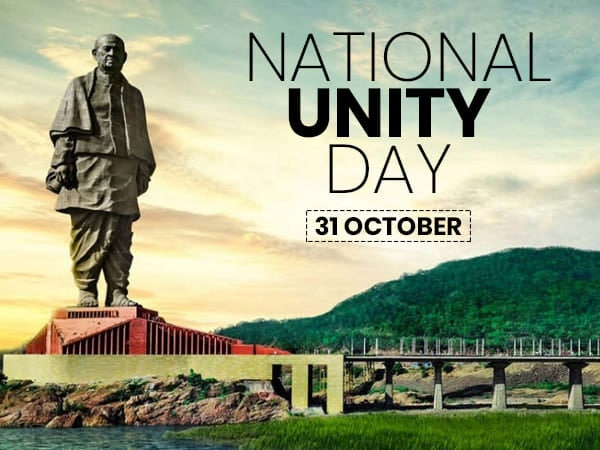Description

Copyright infringement not intended
In News
- The National Unity Day (Rashtriya Ekta Diwas) is celebrated every year on 31st October to mark the birth anniversary of Sardar Vallabhbhai Patel.
- He was India's first Home Minister, who played an important role in convincing many princely states to join the Union of India.
- The National Unity Day was introduced by the Union government in 2014 to pay tribute to Sardar Vallabhbhai Patel on his birth anniversary.
- The Sardar Patel National Unity Award is also presented on Rashtriya Ekta Diwas.
Sardar Vallabhbhai Patel
- Sardar Vallabhbhai Patel (31 October 1875 – 15 December 1950) Started his public life journey as a peasant leader.
- Meeting with Gandhi, in 1917 brought a radical change in Patel and guided him into the Indian independence struggle.
- He entered into the freedom movement through successful satyagrahas in Bardoli and Kheda.
- He supported Gandhi's movement, also recruit members and raise funds, and Supported Gandhi's controversial suspension of resistance in the wake of the Chauri Chaura incident.
- In Gujarat, he worked against alcoholism, untouchability, and caste discrimination, for the empowerment of women.
- ‘Sardar’ title after Bardoli satyagraha in 1928.
- Patel's key achievement was the building of cohesion and trust amongst the different castes and communities, which had been divided along socio-economic lines.
- Patel was elected president of Congress for its 1931 session in Karachi – Ratified the pact and committed himself to the defence of fundamental rights and human freedoms, and a vision of a secular nation with a minimum wage and the abolition of untouchability and serfdom.
Relation between Patel-Nehru-Gandhi
- Patel and Gandhi grew close to each other, and the two developed a close bond of affection, trust, and frankness.
- Patel was intensely loyal to Gandhi, and both he and Nehru looked to him to arbitrate disputes
- Patel clashed with Nehru, opposing declarations of the adoption of socialism at the 1936 Congress session, which he believed was a diversion from the main goal of achieving independence
- Patel supported Nehru's decision to withdraw the Congress from central and provincial legislatures, opposite to Gandhi's advice
- He was one of the first Congress leaders to accept the partition of India as a solution to the rising Muslim separatist movement led by Muhammad Ali Jinnah.
UNITED INDIA
- As the first Home Minister, he played a key role in the integration of the princely states into the Indian federation.
- He is also known as the Founding father of the Republic of India; he played a leading role in the country's struggle for independence and guided its integration into a united, independent nation.
- He acted as Supreme Commander-in-chief of the Indian army during the Political integration of India and the Indo-Pakistan War of 1947.
- Organized relief efforts for refugees fleeing from Punjab and Delhi and worked to restore peace across the nation.
- Employing frank diplomacy with the expressed option to deploy military force, Patel persuaded almost every princely state to accede to India
- Patel was a key force behind the appointment of Dr Bhimrao Ramji Ambedkar as the chairman of the drafting committee, and the inclusion of leaders from a diverse political spectrum in the process of writing the constitution.
- Patel was the chairman of the committees responsible for minorities, tribal and excluded areas, fundamental rights, and provincial constitutions.
- He worked closely with Muslim leaders to end separate electorates.
ADMINISTRATION
- He established the modern all-India services system.
- His commitment to national integration in the newly independent country earned him the title of "Iron Man of India".
- Patel was conscious of the fact that independent India needed a steel frame to run its civil, military, and administrative bureaucracy.
- It was Patel who sent the Indian navy to the port of Lakshadweep at an appropriate time, as Pakistan was equally keen to occupy the strategically important islands.
- He almost single-handedly prevented this balkanization from happening
- Patel took the lead in organizing relief and emergency supplies, establishing refugee camps, and visiting the border areas with Pakistani leaders to encourage peace.
- He restructured the Indian bureaucracy after the transfer of a large number of officials to Pakistan, integrated the princely States into the Indian union, and had an important role in shaping the Indian Constitution

https://www.cnbctv18.com/india/rashtriya-ekta-diwas-2022-sardar-vallabhbhai-patel-all-you-need-to-know-15038361.htm
https://t.me/+hJqMV1O0se03Njk9
















